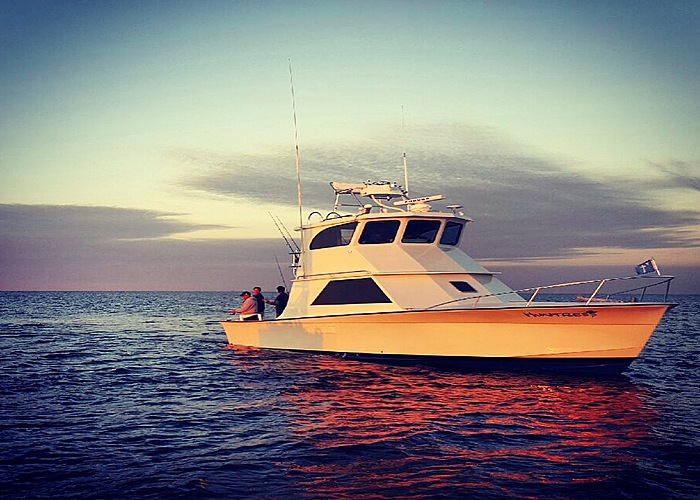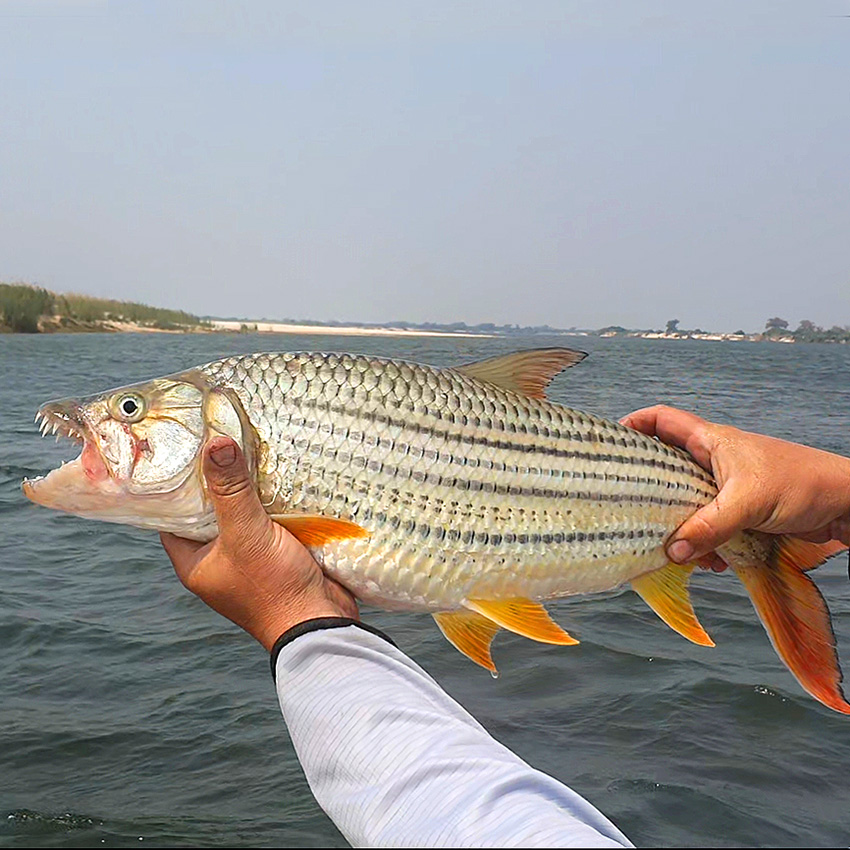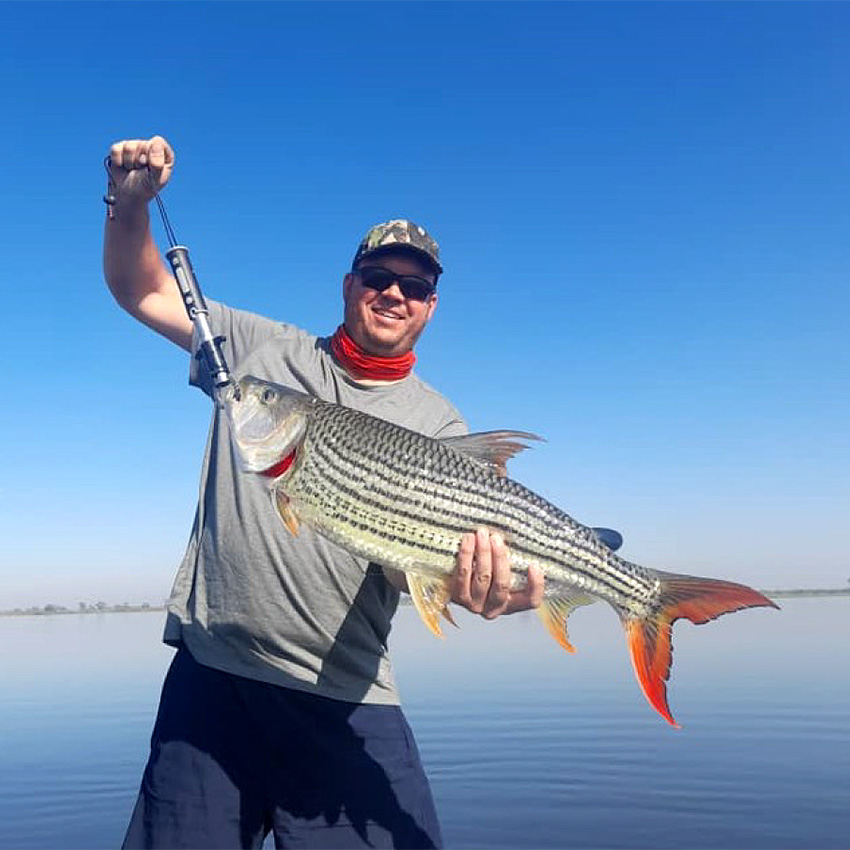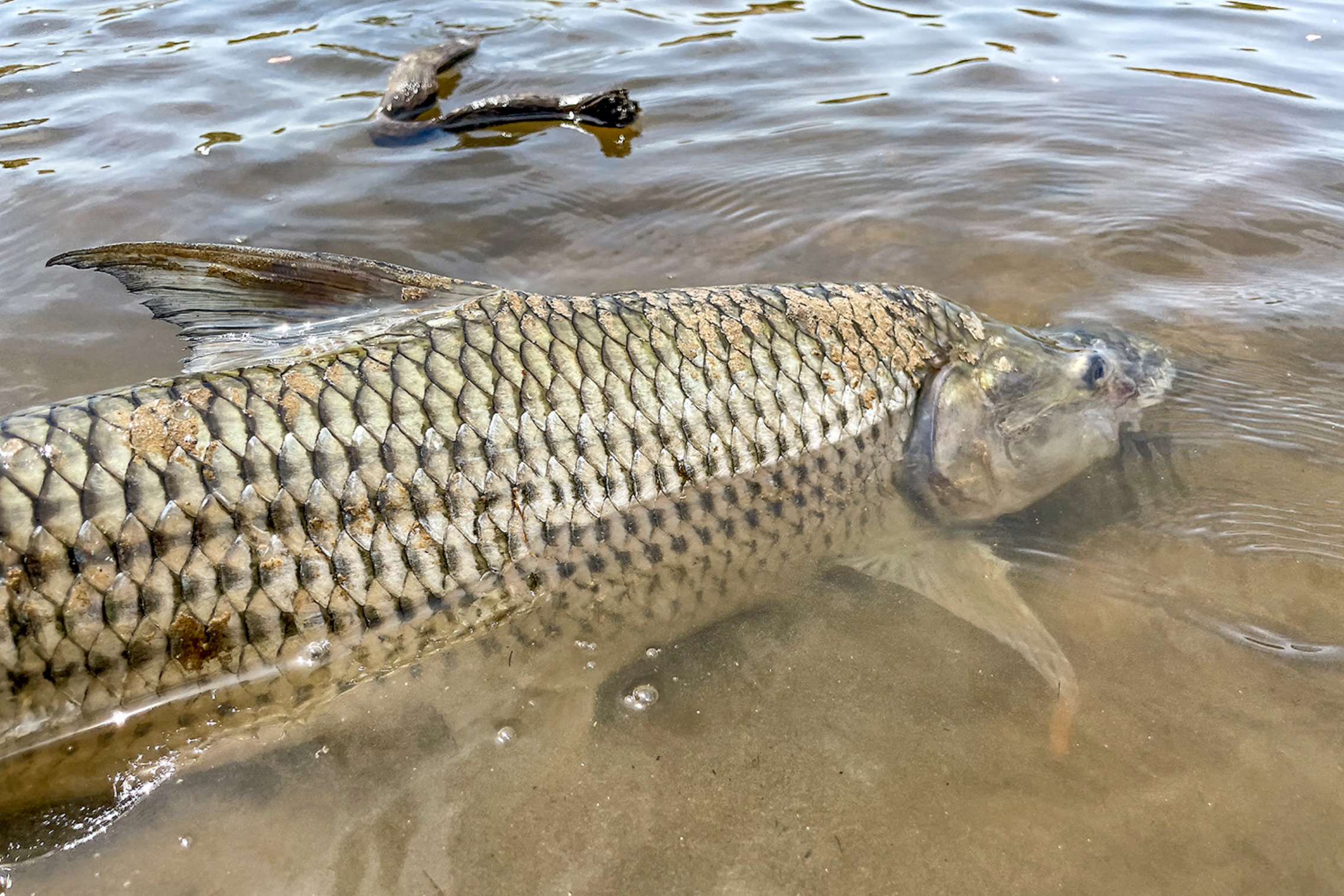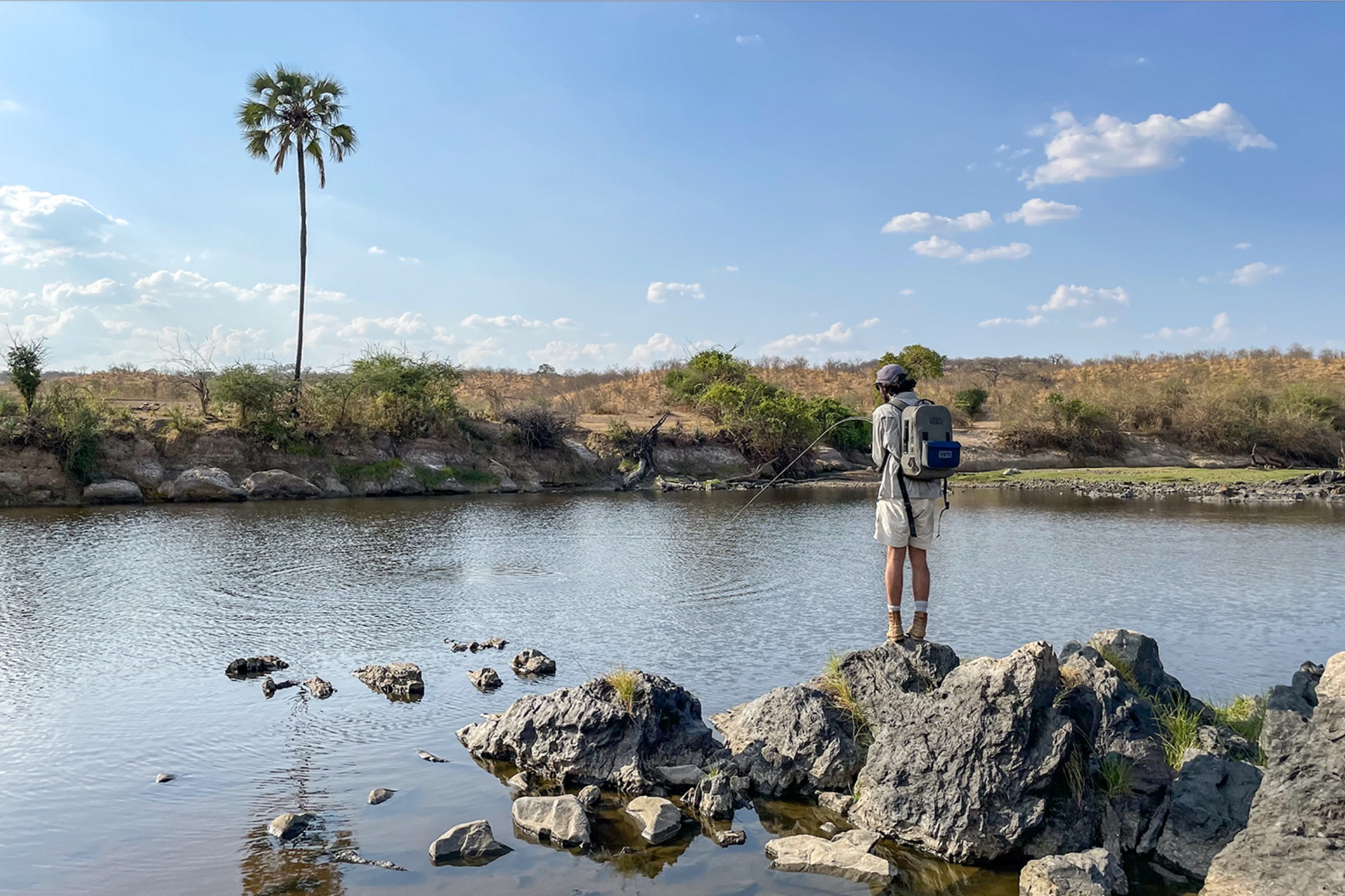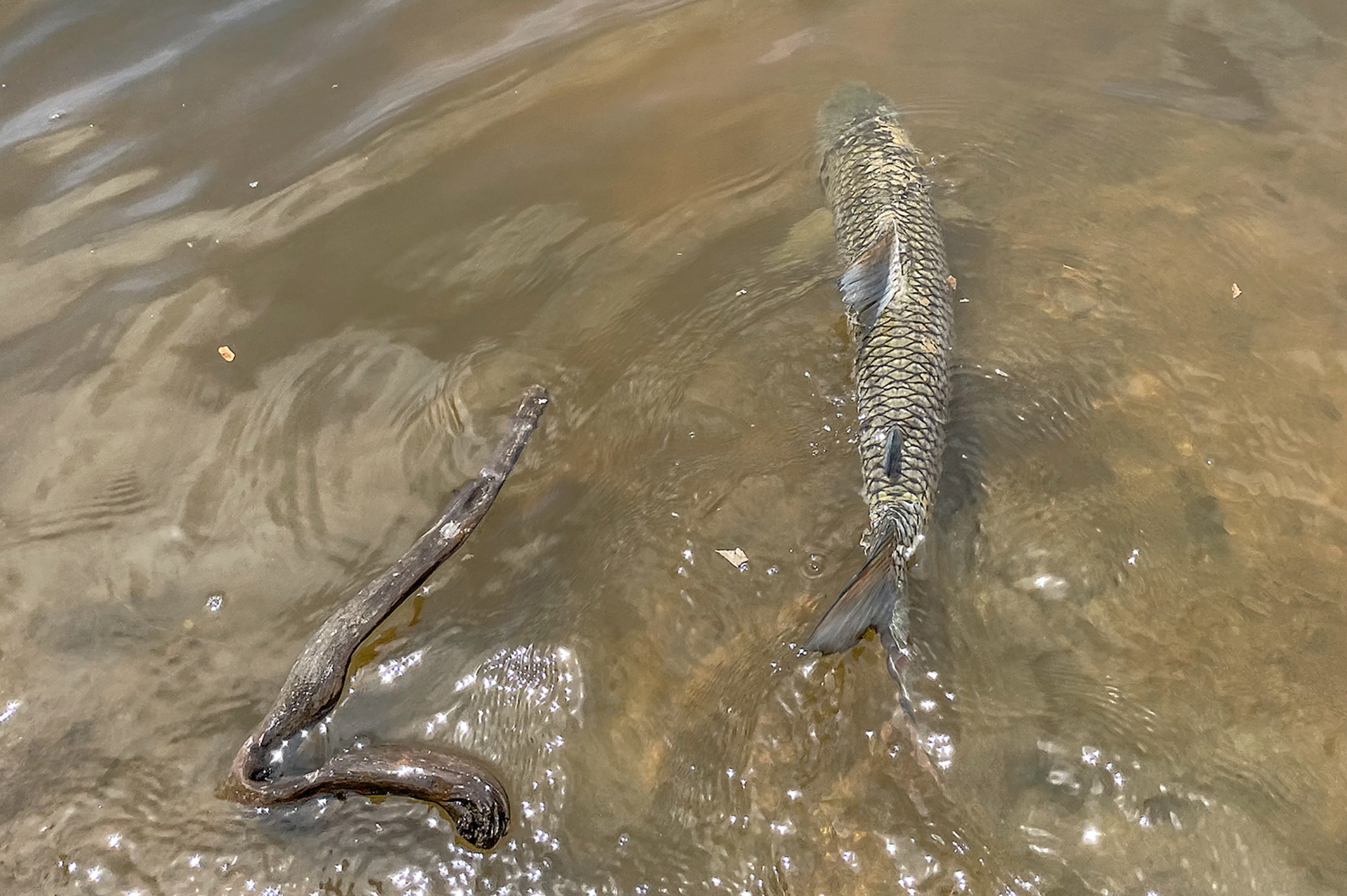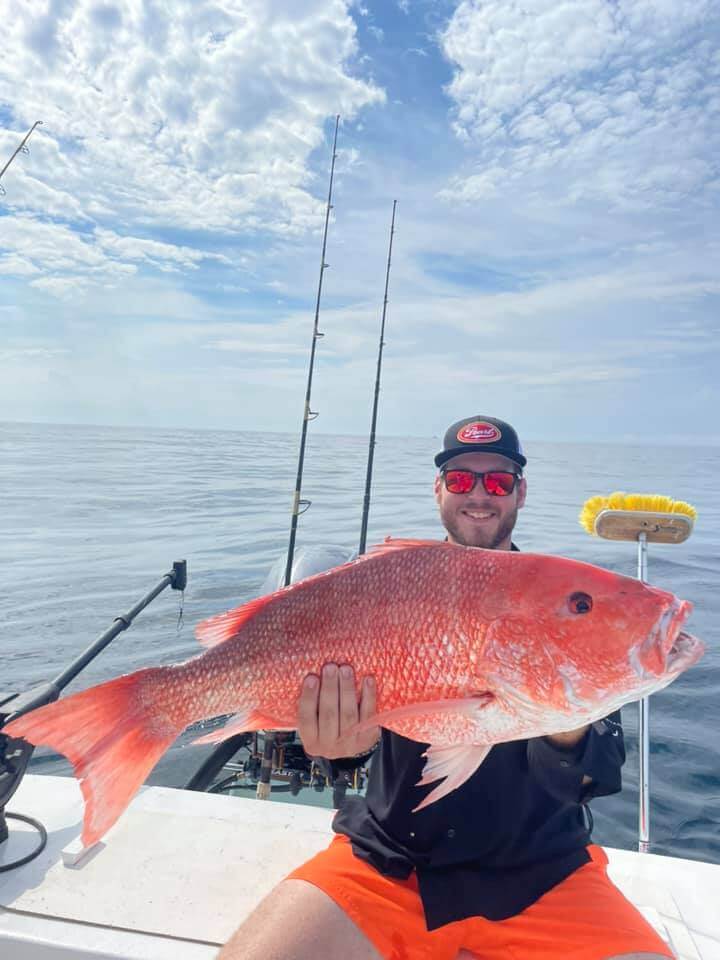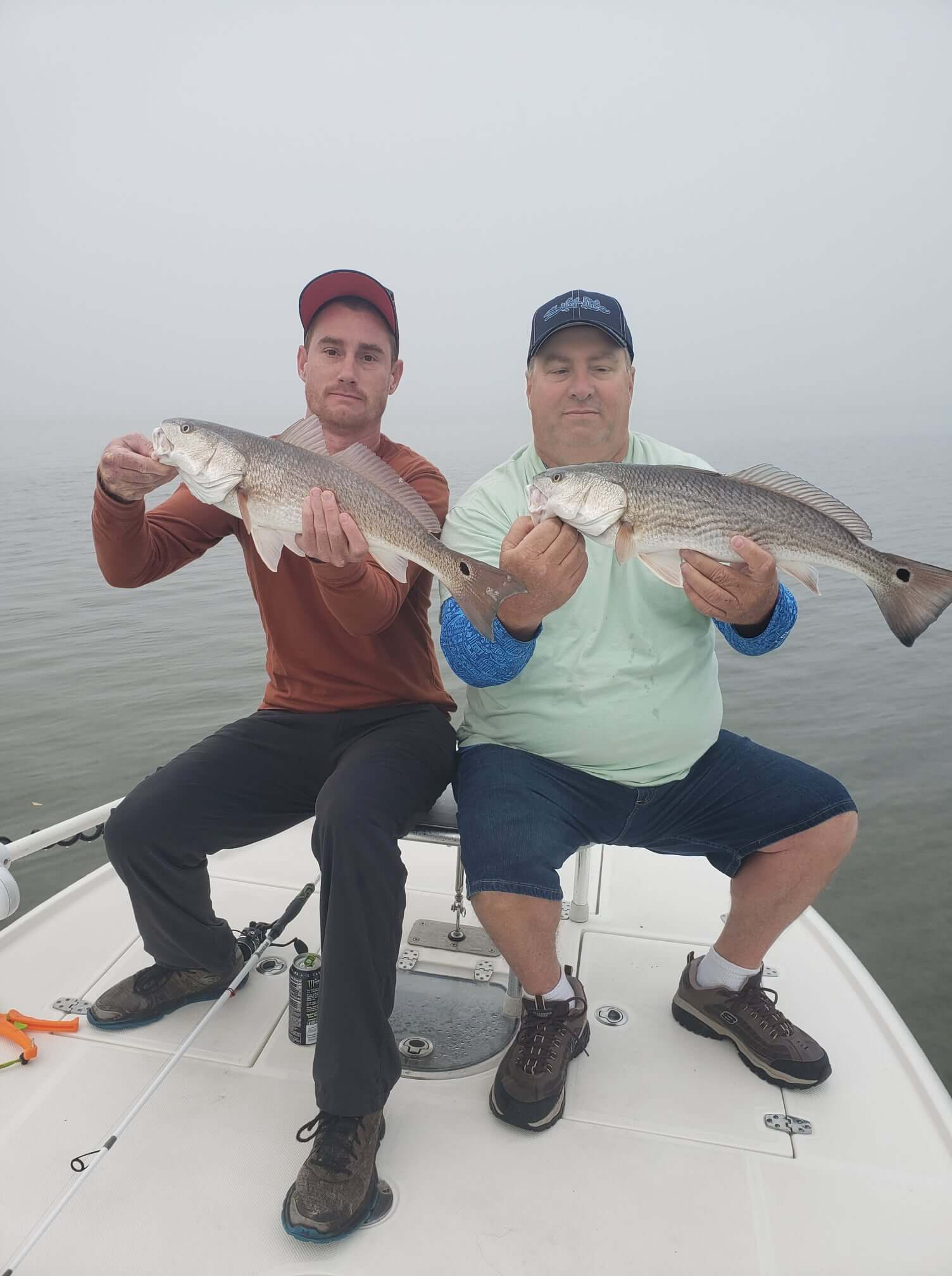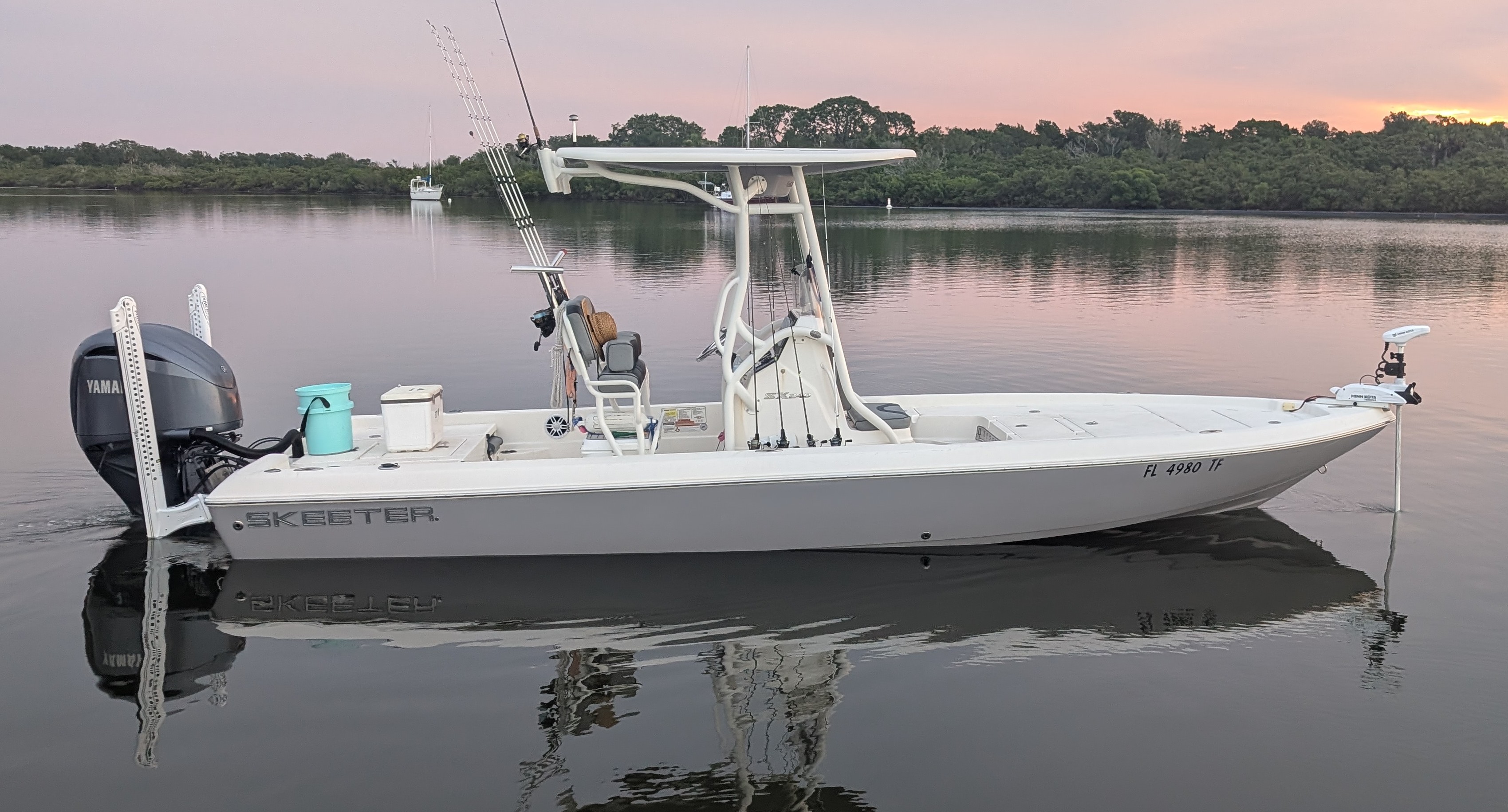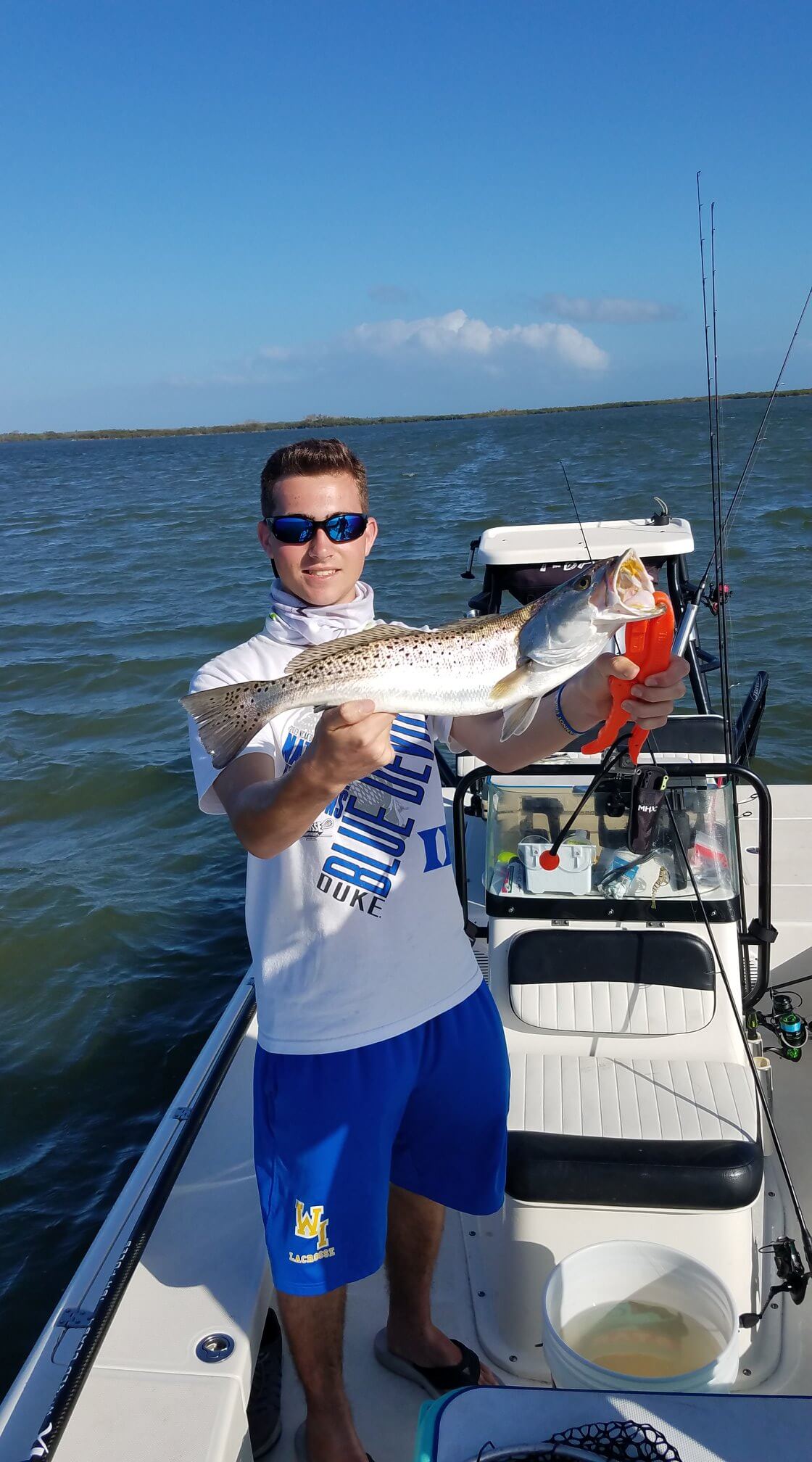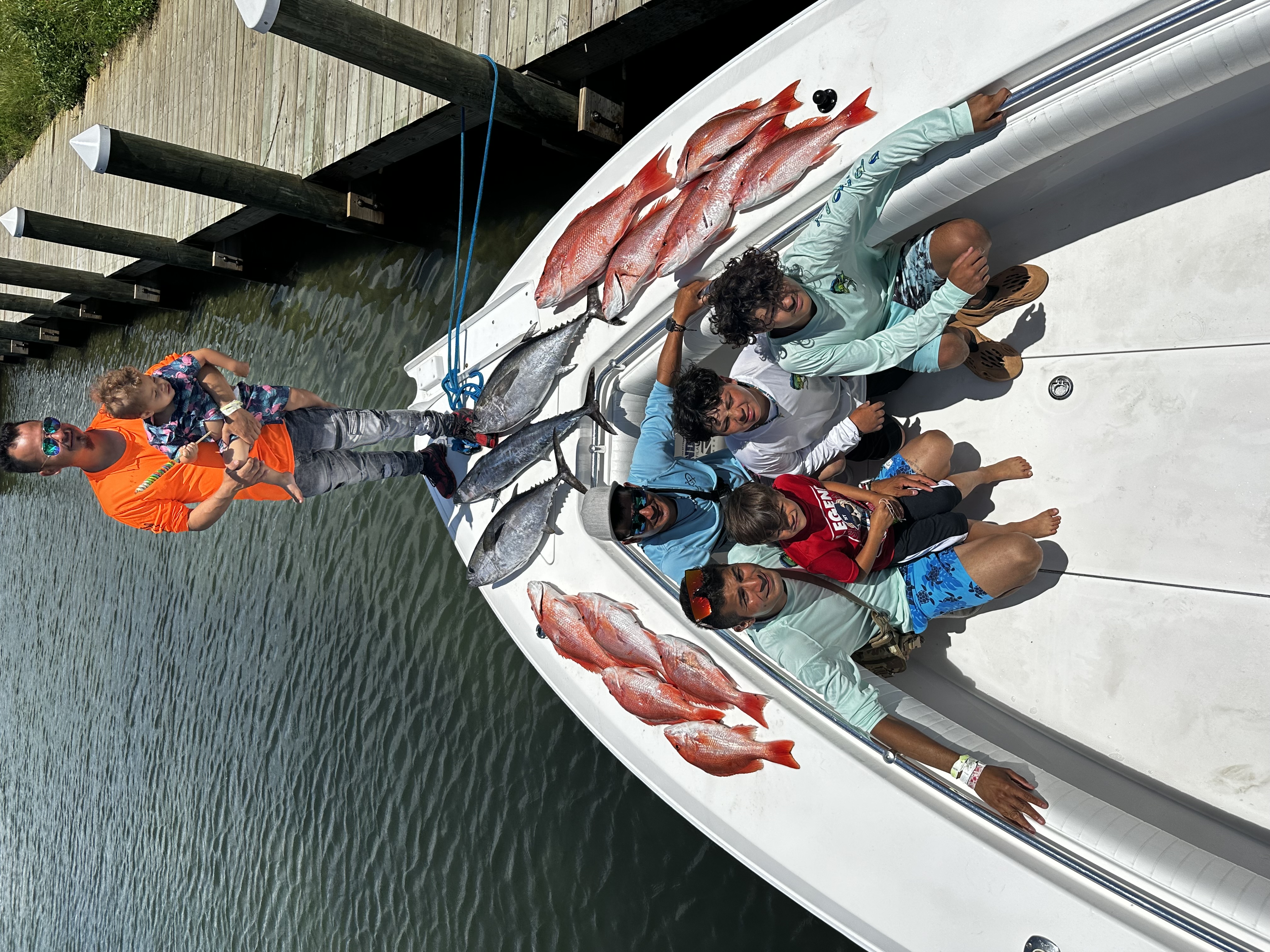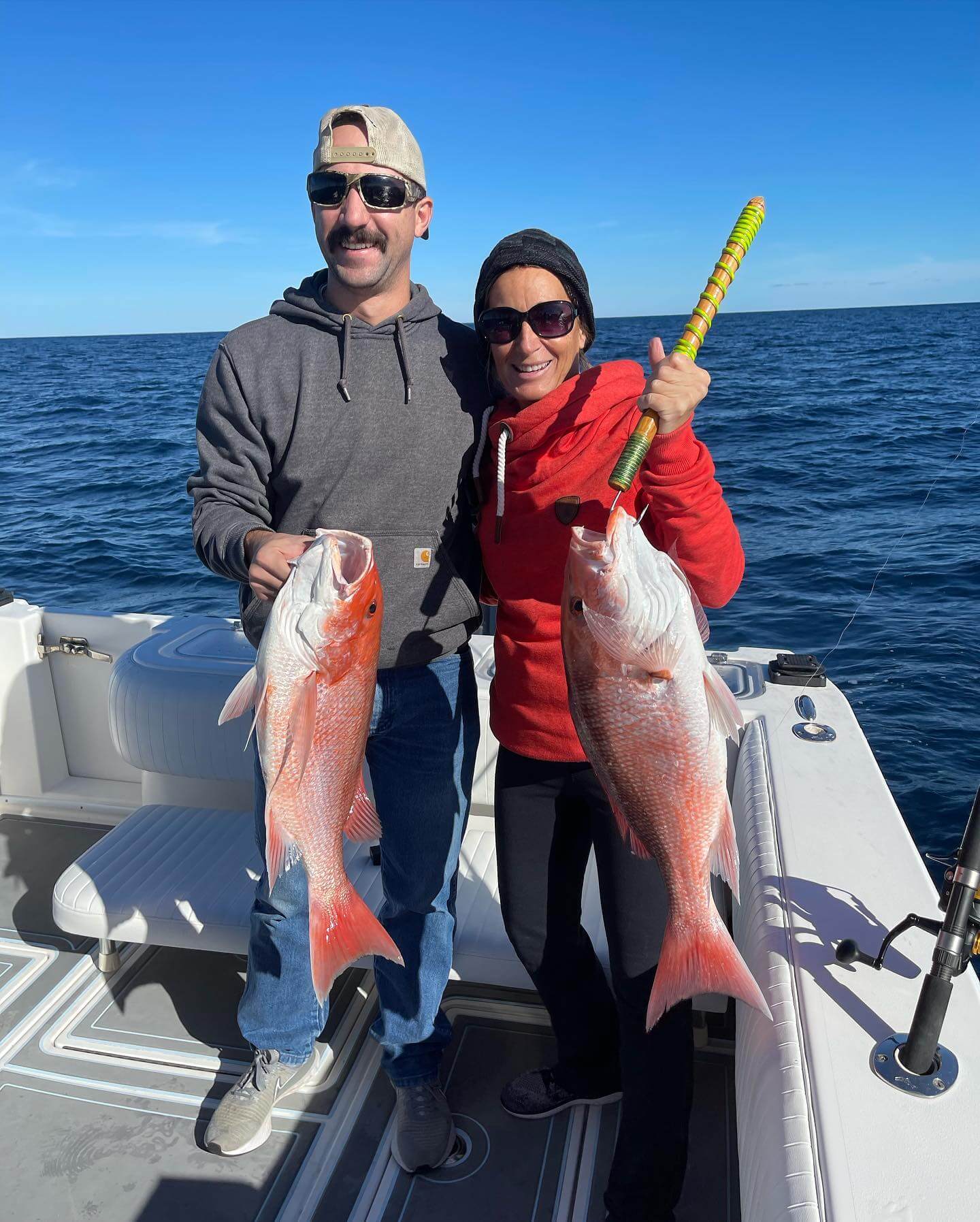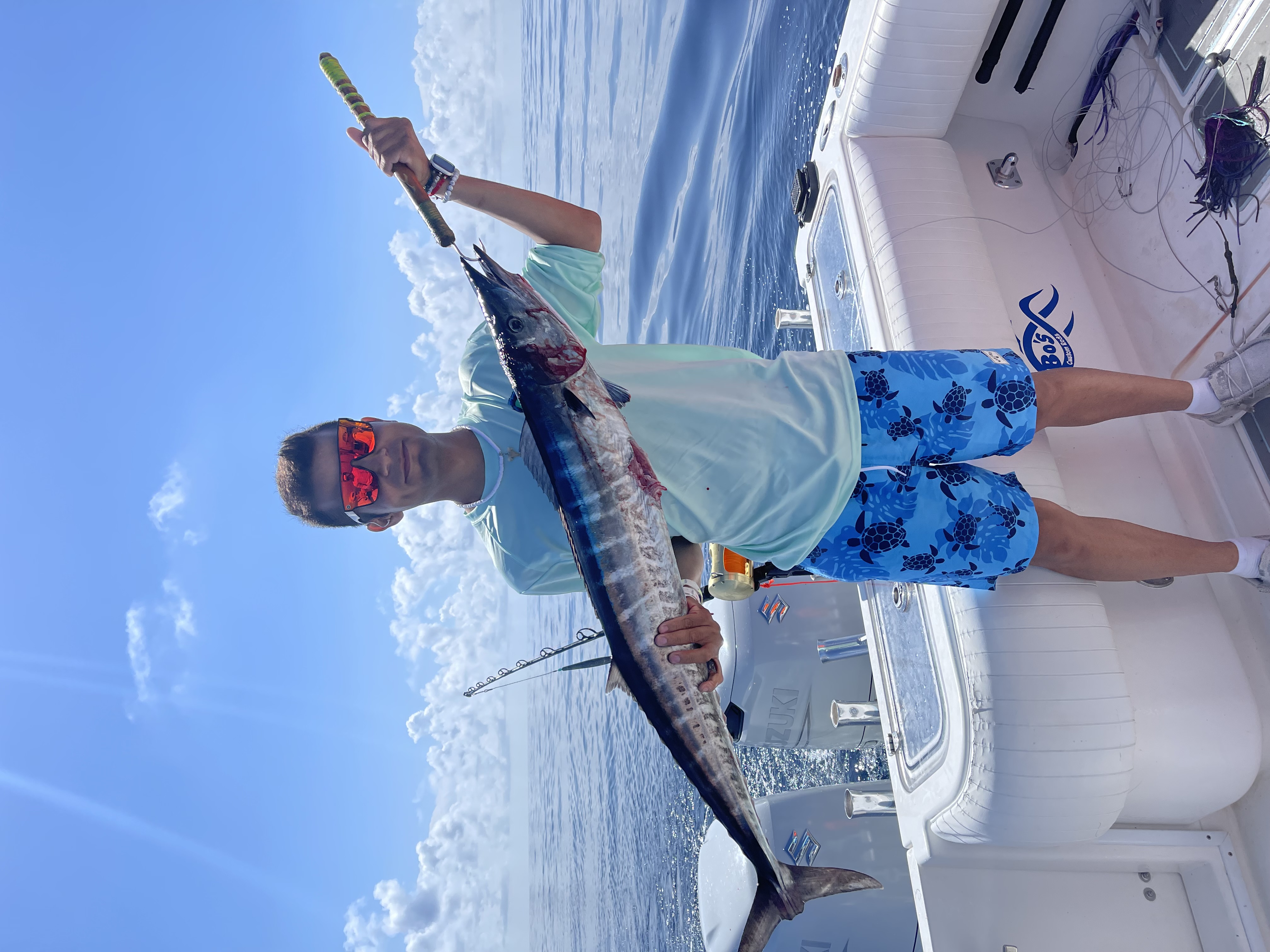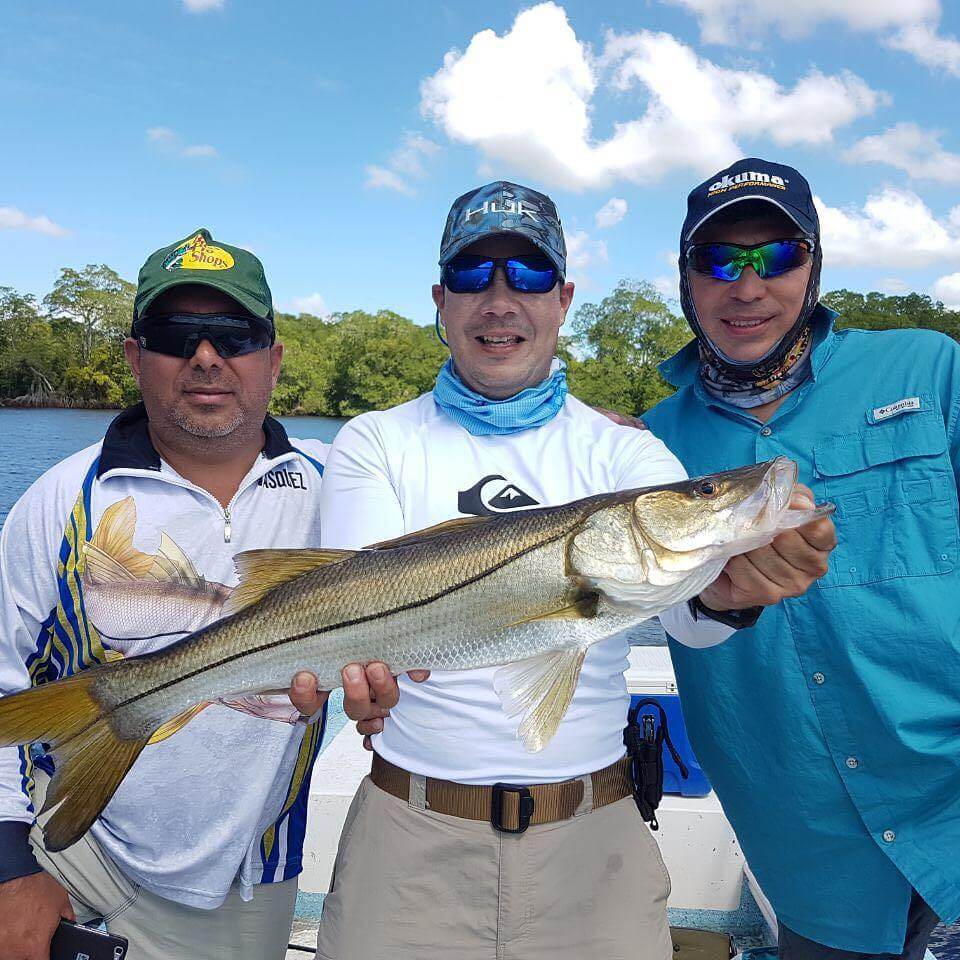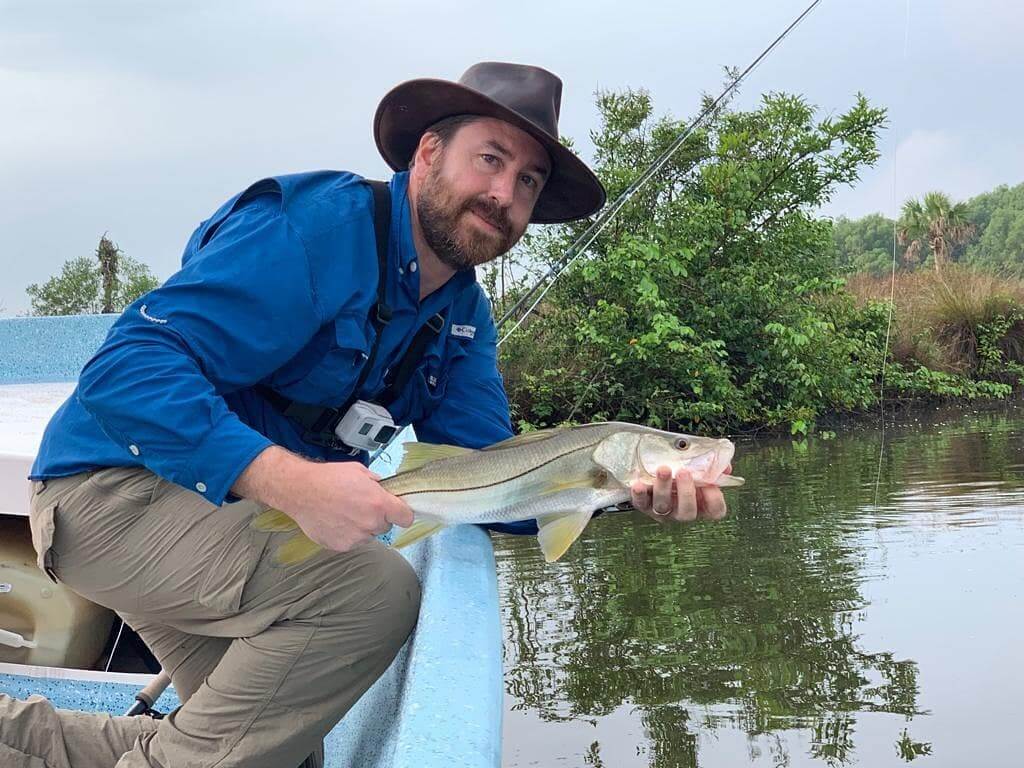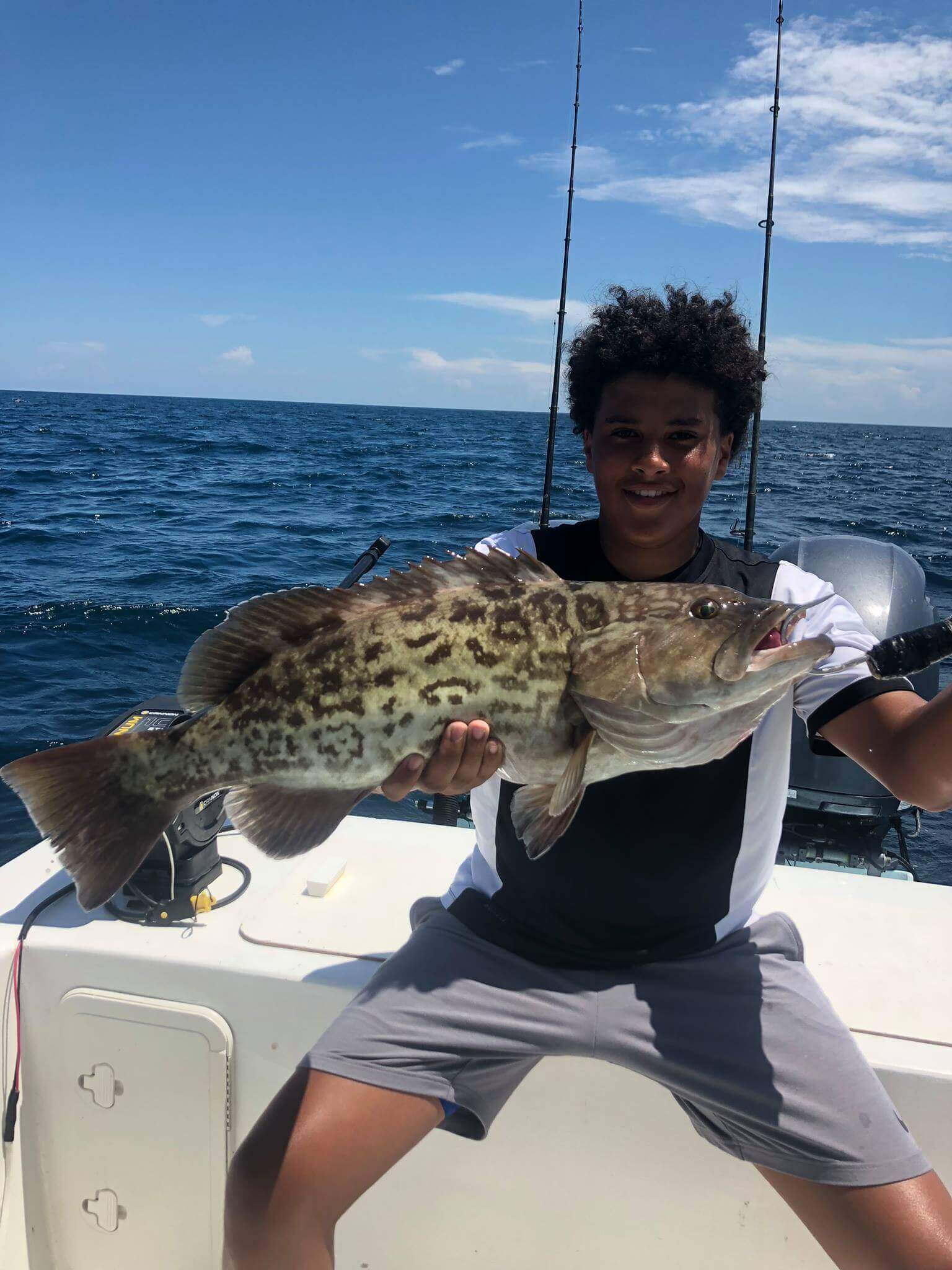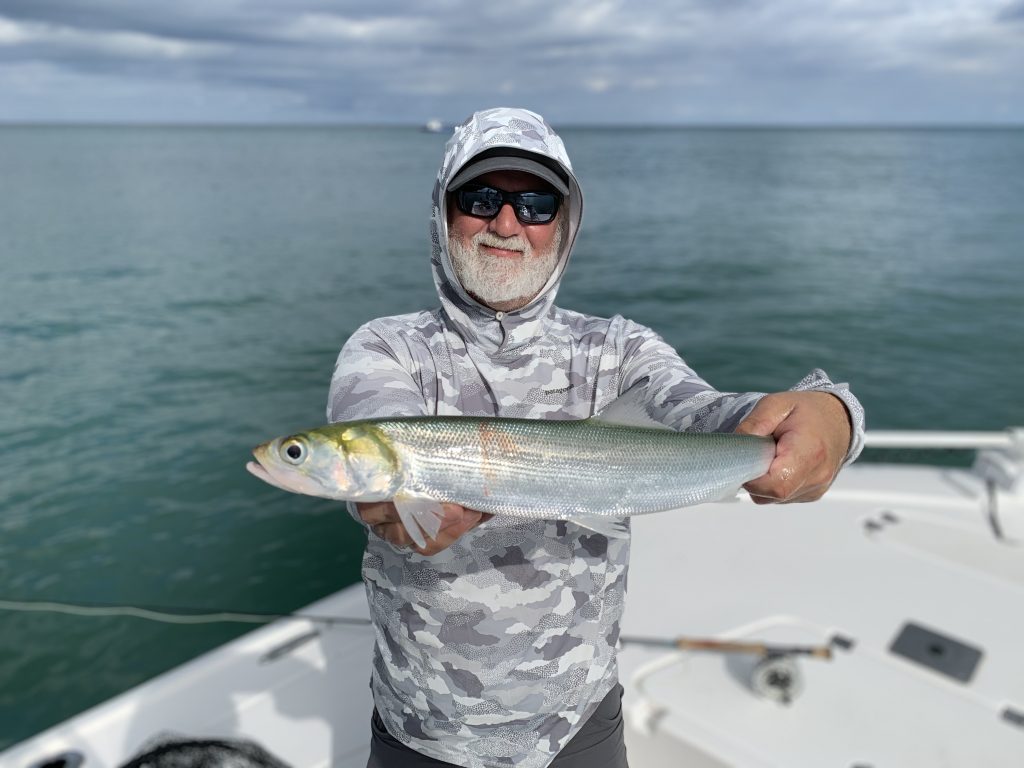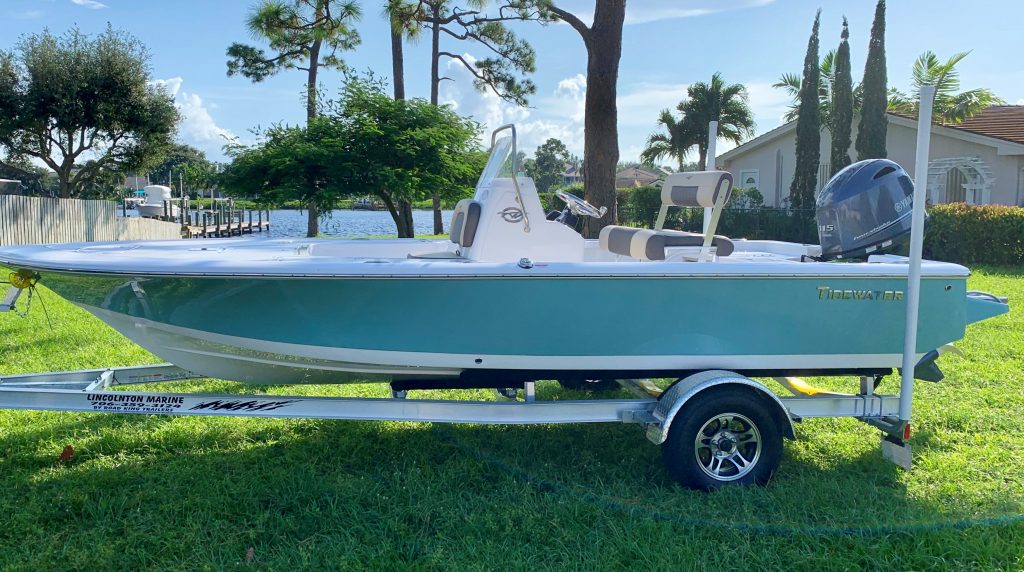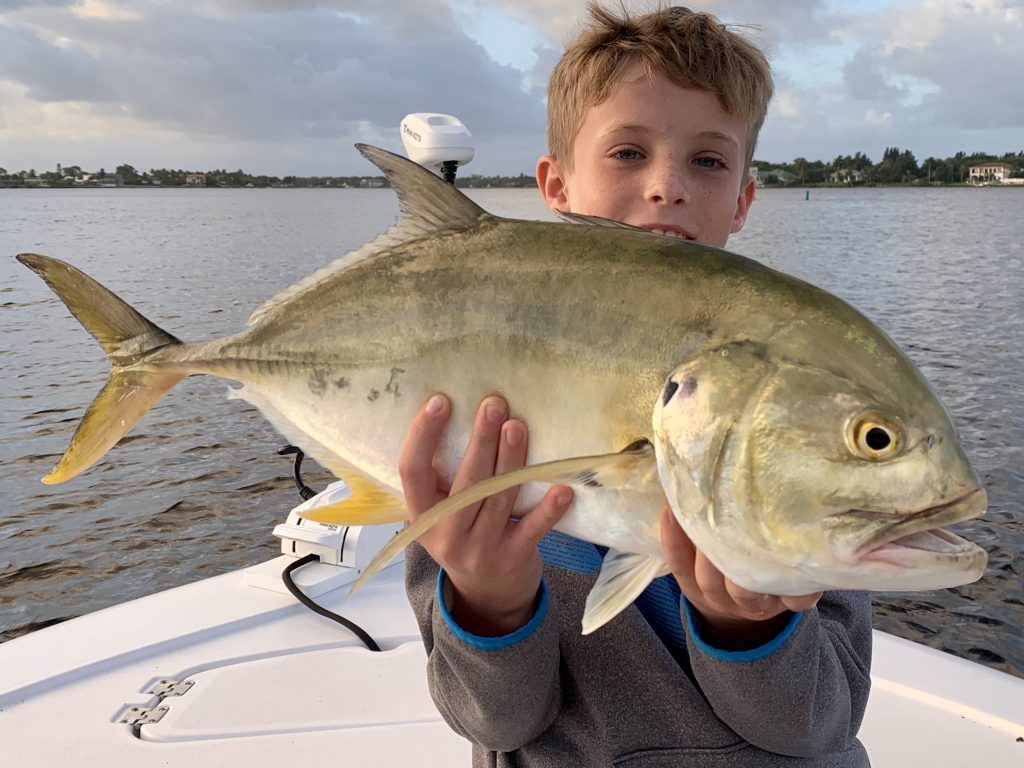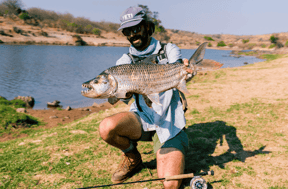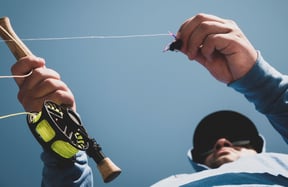Deep Sea, Nearshore Fishing in Destin
4 Hour Fishing Trip
Zambezi Escape
River Fishing in Dar es Salaam
Tanzania Tiger Fish Safari
Relaxing Offshore Special
Inshore, Nearshore, Jetty in New Smyrna Beach
Inshore Saltwater Run
Deep Sea Fishing in Fort Walton Beach
Chasing Lunkers Offshore Trip
Deep Sea Fishing in Fort Walton Beach
Badass Overnight Bluewater
Tabasco Snook & Tarpon Special
Destin Cobia Masters - 42’ Uniflite
Inshore, River, Flats in Jupiter
Jupiter Inlet On The Fly
We started Captain Experiences to make it easy to book fishing and hunting guides around the world. With over 2,000 Damn Good Guides, our platform makes finding and booking a trip seamless. Head here to check out our trips.
Is Landing a Tigerfish Hard?
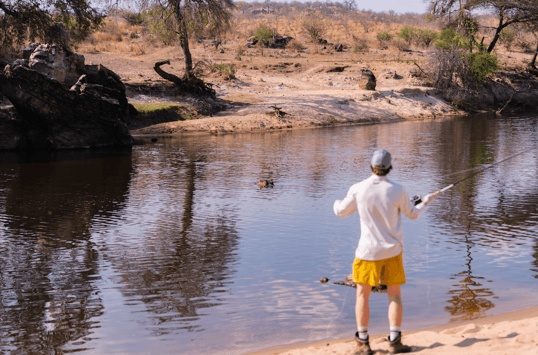
Casting over the heads of a few hippos.
That’s an understatement - there’s no past experience that can prepare you for a big tiger on the line.
The first challenge you’ll face is just getting to the tigers. A trip around the world is no trip to your backyard pond.
The second challenge is the unknown. With so few coming before you, there is no standard to set the way. You don’t know which fly to throw, or which lure will work, or how any of these fish will behave. This is true old-school trial and error fishing, and you need to take your best guess.
The third challenge is your environment. Picture this: it’s 96 degrees in the shade, you’re sweating out of every pore. You hike a mile over rocks, creeks, hills, and thorny shrubs that seem to catch your clothes, your rods, and your arms every time you pass by. You make it to a spot and set up to cast, and you begin your work. Within minutes a croc begins to follow your lure in. You get annoyed and distracted.
Your last hurdle is the biology of the tigerfish themselves. These fish are prehistoric. They are always on the prowl hunting, meaning you always need to be on the move, hunting them. They live in water ranging from dark brown to black, meaning your visibility is next to nothing. They strike their prey from the side or behind, meaning they often tear apart your gear without getting hooked up. Not to mention a tigerfish’s mouth is basically one big hunk of bone - there isn't much flesh to hook, so your set had better be perfect.
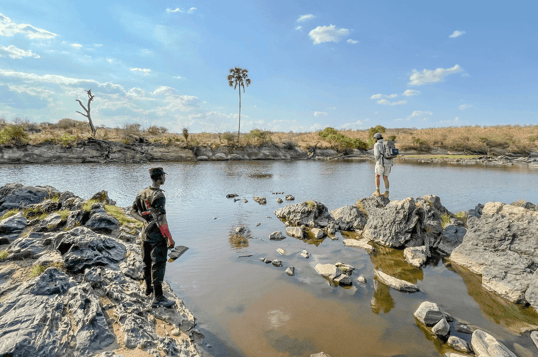
Fighting a tiger under the watchful eye of Wolfgang, one of our guards.
Every tigerfish in hand is the product of 20 that have given your fly a pass, or swiped and missed, or bit but didn’t get hooked, or your set was good but it just didn’t stick in their mouth, or they shake the fly with a big jump, or they break the leader with their teeth, or they get eaten by a croc on the way in. That 1 in 20 fish is a small Tanzanian miracle, and you celebrate every win.
A Primer on Tigerfish Behavior
Within the first few days, we really start to get a pulse on the behavior of tigerfish. We are here right at the beginning of the rainy season, and after months of dry season, the river has receded almost 20 feet in height, and rather than a flowing, 100 yard wide river (the Great Ruaha), we are fishing more like quarter-mile to mile long pools.
In the rainy season, banks overflow, baitfish repopulate their numbers, and tigerfish grow fat. You can find them by following the birds (and therefore, the baitfish).
In the dry season, these small pools of water mean all wildlife is concentrated. All remaining baitfish stay in small shallow areas, the tigerfish patrol up and down, and all the big game use these same pools for water. This means the tigers are concentrated and hungry - as bait gets eaten or trapped in side pools, tigerfish have less to rely on.
This means our job finding the tigerfish should be less difficult - we know generally where they are, and we don’t need a boat to patrol the river to find them. But we also lose the telltale signs of action: there is no bird sign and no big bait balls. In this water it is every man for himself.
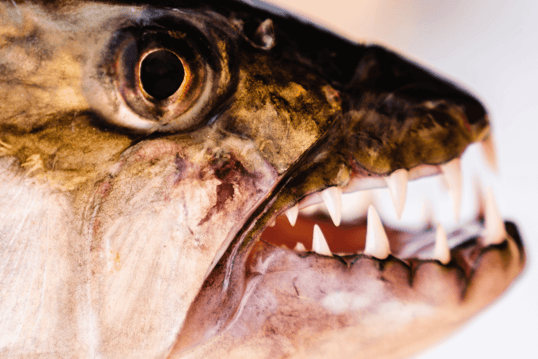
These teeth rip up leader like it's their job.
We learn that the tigerfish are super mobile. We initially thought the fish would just get reluctant after a few casts and the bite was just turning off. This is true to an extent - the fish will turn off after a few mouthfuls of metal - but we find that when they are really hot in a certain area, this is because a pod of tigers have reached that part of the pool. If you wait long enough, they will return.
Tigers will also generally always blow up initially, but will be more reluctant after that. You really get one first shot in each area to make a good impression and hook one. We aren’t sure yet how long their memory is, but it seems to be somewhat good, as the bite earlier in the week was better than later.
Given this somewhat contradictory evidence, we debate whether it is better to sit still and wait for the tigers to return, or to head out and hunt the tigers ourselves, and generally decide that it’s better to be on the prowl.
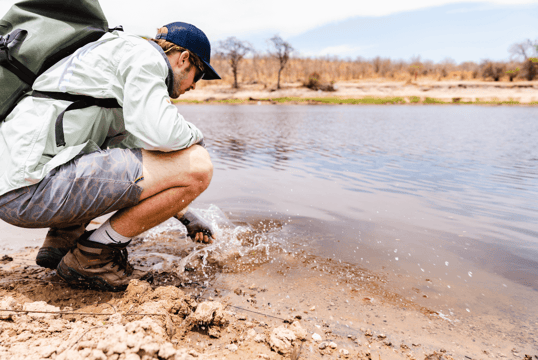
A tiger exploding off the release.
We also have started to see a ton of tigers that will take a pass at a lure or fly without hitting it, and you can see them fly past, usually from the side. You start to read the ripples of water that precede a big tiger and get excited regardless of whether he actually hits or not.
We have been fishing generally white flies and lighter lures, since the water is so dark (not a murky dark, but just black, dark water). We find that the best colors for this season are generally lighter, and whites with red accents do well, followed by whites with green or blue accents. Dark flies and lures generally did worse, although sometimes we would be surprised.
Longer flies generally get more attention and swipes, but tigers also miss them a lot. Tigers (especially smaller ones) will chomp the back half of the fly and give it shorter and shorter haircuts. So shorter flies are more consistent in terms of hookups but attract fewer overall strikes.
Get used to changing flies - they'll be torn up after a few bites.
On conventional, gold and silver spoons held tried and true, but soft plastics outperformed. The tigerfish seemed to be unable to resist a juicy dark green creature bait on a 1/4 oz jighead. The only downside here is that when the fish you target can destroy a 6 inch hard plastic popper, your soft plastic ends up being a one-cast wonder. Otherwise, single hooks outperformed trebles, and makes your already difficult task of dehooking a tiger that much easier at the same time.
Poppers also generally work better over hard plastic swimbaits or crankbaits, and smaller poppers are more consistent than bigger ones.
Fan casting also seems to work best for these fish at this point in the season as they move up and downriver in search of prey. They definitely behave like other toothy marine predators - either slamming from the side and trying to take a chunk out (and sometimes missing completely in their haste) or slamming from behind and pushing the fly or lure forward, which makes it super difficult to set the hook.
Doug the daredevil fishing for tigers barefoot in croc-infested waters.
Onwards: African Catfish, Game Guards, and Sleeping in the Bush
We decide to take a few last sunset casts and I throw a heavy streamer and let it sink down before my retrieve. I feel something on the line, set, and the fight immediately feels different.
The bite was slower, the fight more of a tug than a run, and the fish stays low. I bring the fish to the bank and am quickly told by our game guards that this is a catauga - a freshwater catfish that is supposedly some of the best eating fish in the world. We take a few pictures with this last minute bonus fish and head on back to camp.

Attison with the catauga, a type of freshwater catfish.
The game guards quickly became a staple of our trip. Their official role is to protect us as guests of the park, always on the lookout for either poachers or a croc that gets too close for comfort.
The guards (George and Yohana) quickly became just another part of the group. George by day does not even work protection for the park; he is normally the social media and marketing lead for the park and happens to love fishing (he later caught a massive 60 cm tiger). They are also prime examples of the friendliness we encountered in Tanzania overall - they hosted us up at the ranger post for dinner, beers, and pool and we traded a few games with some of the other park rangers.

The group by the safari car in camp. From left to right: George, Austin, Jonathan, Rajabu, Attison, Wolfgang. Not pictured are our guide Dom and guard Yohana.
We get back to camp and Rajabu (our driver / chef) has set up tents for us and has cold (about 80 degrees, but slightly colder than the air temperature) beers waiting for us. Rajabu is like our father figure on this trip - he makes sure we are always taken care of after a long day of fishing. After exhausting yourself all day in the hot bush, you don’t take for granted a cold water or a warm meal.
We spend some time watching “bush tv” (the fire) before heading to bed and getting ready to wake up with the sun.
This is the second in a 5 part series:
Part 1: Habari, and Welcome to Tanzanian Fishing
Part 3: Setting the Tigerfish Record
Part 4: 50 Miles to Latham Island
Part 5: Fishing for Rainbows in the Shadow of Kilimanjaro
Attison Barnes
Updated on July 31, 2023

October 26, 2020

November 15, 2023

June 3, 2021

May 13, 2024

March 8, 2022
Related Articles
March 8, 2022
October 24, 2022
May 10, 2023
Featured Locations
- Fishing Charters Near Me
- Austin Fishing Guides
- Biloxi Fishing Charters
- Bradenton Fishing Charters
- Cabo San Lucas Fishing Charters
- Cancun Fishing Charters
- Cape Coral Fishing Charters
- Charleston Fishing Charters
- Clearwater Fishing Charters
- Corpus Christi Fishing Charters
- Crystal River Fishing Charters
- Dauphin Island Fishing Charters
- Daytona Beach Fishing Charters
- Destin Fishing Charters
- Fort Lauderdale Fishing Charters
- Fort Myers Fishing Charters
- Fort Walton Beach Fishing Charters
- Galveston Fishing Charters
- Gulf Shores Fishing Charters
- Hatteras Fishing Charters
- Hilton Head Fishing Charters
- Islamorada Fishing Charters
- Jacksonville Fishing Charters
- Jupiter Fishing Charters
- Key Largo Fishing Charters
- Key West Fishing Charters
- Kona Fishing Charters
- Lakeside Marblehead Fishing Charters
- Marathon Fishing Charters
- Marco Island Fishing Charters
- Miami Fishing Charters
- Montauk Fishing Charters
- Morehead City Fishing Charters
- Naples Fishing Charters
- New Orleans Fishing Charters
- New Smyrna Beach Fishing Charters
- Ocean City Fishing Charters
- Orange Beach Fishing Charters
- Panama City Beach Fishing Charters
- Pensacola Fishing Charters
- Pompano Beach Fishing Charters
- Port Aransas Fishing Charters
- Port Orange Fishing Charters
- Rockport Fishing Charters
- San Diego Fishing Charters
- San Juan Fishing Charters
- Sarasota Fishing Charters
- South Padre Island Fishing Charters
- St. Augustine Fishing Charters
- St. Petersburg Fishing Charters
- Tampa Fishing Charters
- Tarpon Springs Fishing Charters
- Venice Fishing Charters
- Virginia Beach Fishing Charters
- West Palm Beach Fishing Charters
- Wilmington Fishing Charters
- Wrightsville Beach Fishing Charters

